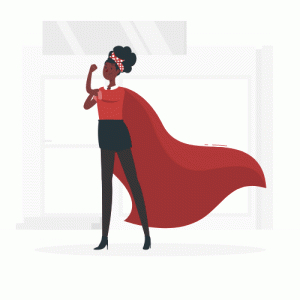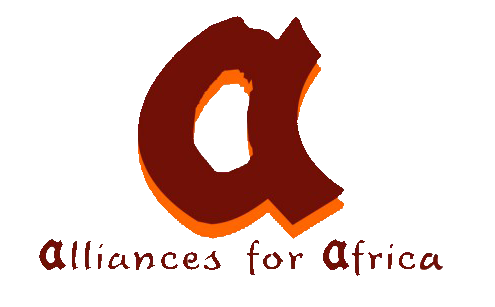Nigeria as a member of the United Nations signed and ratified the various relevant international instruments, treaties and conventions without reservation. These instruments have always emphasized that member nations put in place all the necessary mechanisms needed to eliminate gender discriminations, ensure equality and human dignity to all, men and women.
Available statistics reveal that out of the 109 senators in the National Assembly, only nine (9) are women, while only 27 out of the 360 members of the House of Representatives are women. The picture clearly depicts a lopsided membership of the House in favor of the men. Women are still under-represented and obviously marginalized in democratization in legislative and executive arms of government. This trend flows from the national level, to state down to local levels where few women take the lead in local government chairman and councilors.
Record has it that no woman has ever become a president or a vice president
The only first female governor in Nigeria, Dame Virgy Etiaba, only functioned as Anambra State’s governor for six months, following the impeachment of her boss, Gov. Peter Obi, on November 2, 2006. Ever since then, the closest a woman has come in governance is deputy governor as we have the first female deputy governor of Rivers state, south-south Nigeria, Her Excellency, Dr. Mrs. Ipalibo Banigo.
This is regardless of the fact that a National Gender Policy has been formulated to promote a 35 percent affirmative action for women – a policy that demands 35 percent involvement of women in all governance processes. The national Gender Policy (NGP) has formulated a 35% Affirmative Action (AA) in Nigeria since 2006. This policy demands that 35% of women be involved in all governance processes. The NGP is recognized but is not practiced as the structures and processes to use are not in place.
In Rwanda 2003, the government approved a new constitution that included a quota system for women at all levels of government. The legislation mandated that 30 percent of all representatives, including those in parliament, be women. Rwanda’s quota is different than many other systems in that it’s not a quota solely on candidates, but rather reserves a minimum number of seats for women (often known as Equality of Result quotas). Only women are eligible to vote for the women-only seats. In election later that year, women increased their presence in the lower parliament from 23% to 49%. In 2013, women’s representatives rose even further to 64%. Rwanda is the first country in which women have moved beyond half of political leadership, as the country has prioritized women including structures and processes designed to advance them in all level of leadership. Mechanisms for reaching gender parity include a gender ministry with a substantial mandate; women’s councils elected at the grassroots and represented at the national level; a women-only ballot; a gender-progressive constitution shaped by women leaders in government and civil society; and, perhaps most important, a required quota of 30 percent women in all government decision-making bodies.
In Senegal 2010, gender parity law came into force through gender quota of 50/50 called the law of parity. The law obliges all political parties to nominate an equal amount of women and men on party lists and as constituency candidates. Parties are not allowed to run election if they fail to achieve gender parity on candidate lists. By 2012, it became very key and number of women increased from 22.7% to 42.7%.
The experience of Senegal and Rwanda is point blank evidence that affirmative action is one sure way to get more women at the apex of political leadership and decision making.
Alliances for Africa (AfA) is active in ensuring the full implementation of 35% affirmative action across South East, Nigeria through the UN Women Funds For Gender Project currently ongoing in the five south eastern states; Abia Anambra, Enugu, Ebonyi and Imo. In 2016, the ongoing project trained 145 female politicians selected from the 5 south-east project states and within eighteen months, recorded a success of 3 elected female politicians as local government chairmen and member of the state house assemble, 11 female politicians appointed members occupying decision making positions in their respective states. The goal of the project is to have more women in elected positions to drive the course of women forward and make impacts in the developing economy where it matters most. Women make up of 49.4% (94.2 million persons) of the entire population and need more than 35% representation in all political positions.
AfA collaborates with key stakeholders in political spaces and other institutions including the government, political parties, Independent National Electoral Commission (INEC), National Orientation Agency (NOA), Ministry of Women Affairs/Social Development, Women groups, CSOs/NGOs, Female politicians, traditional rulers and media to insist on the full implementation of the affirmative action, to curb gender stereotype, discrimination and abuse of rights of women in public participation in governance. The economy’s developmental strategies and outputs in all the segments always face some high level of threat and lack when women are not fully represented in public spaces.
As part of the 2018 activities in the ongoing UN Women FGE project in the 5 south east states, AfA will be organizing a 2 day capacity building for women in governance who are already functioning in their offices. This is aimed at directing them to deliver good governance, accountability, accelerating young women’s political participation, and ascent in their political career. Nigeria local laws and International treaties grant women the right to equal political participation, Alliances for Africa insists that signatories fulfill their obligation to women.
ABOUT AFA: AFA is an international African led non-governmental human right, peace and sustainable development organization. AFA works with partners in, around and beyond the continent of Africa. AFA was created to enhance and reconstruct the interface human right and development, with a vision to contributing innovatively to the task of tackling causes of endemic poverty and exclusion in Africa. . AfA works with partners in, around and beyond the continent of Africa to advocate for protection of human rights; promote women’s participation in leadership and governance; build institutional capacity, advocate for gender justice, equality and non-discrimination, as well as promoting peace, security and conflict resolution interventions.


